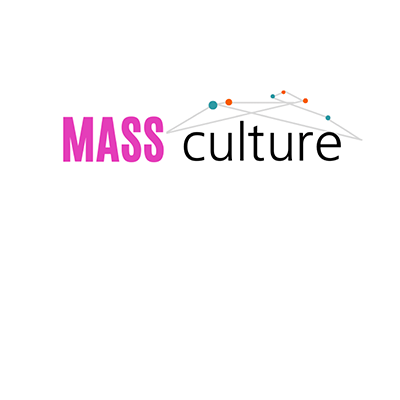‘Evaluation is storytelling’: Amplifying Youth and Youth Worker Voice, Part 1
This is the first of a two-part interview with Kathe Rogers, Managing Director of YouthREX, originally published by Mass Culture on February 10, 2025. In part one, Kathe reflects on YouthREX’s evaluation work.
The conversation with Kathe Rogers begins in her home, a setting that reflects the grassroots, community-oriented ethos of her work with the Youth Research and Evaluation eXchange (YouthREX). Introducing herself, Kathe speaks directly to the thread that has tied together her professional journey. “I’m a registered social worker and the Managing Director at YouthREX,” she begins. “I’ve worked in various roles, but the common thread throughout my time at YouthREX, and throughout my career, has always been storytelling.”
Kathe recalls her early career in communications and advocacy within the nonprofit sector before pursuing a Master’s in social work at York University. “That’s where I met Dr. Uzo Anucha, YouthREX’s Founder and Academic Director,” she says. “As a graduate student, I was able to draw on my communications background and social work education to support community-engaged projects that would provide the foundation for YouthREX – all centered on critical positive youth development, meaningful youth engagement, and social action.” Later, Kathe supported the proposal that initially funded YouthREX, and, in 2017, she returned to the School of Social Work at York (where YouthREX is based) to take on a full-time role with the team.
YouthREX’s perspective on evaluation was deeply informed by community-engagement and an understanding of opportunities and barriers in the youth sector. “Evaluation is storytelling,” Kathe explains. “It’s not just about measuring or proving impact; it’s about learning from the programs we create, amplifying voices, and sharing those stories in meaningful ways. At YouthREX, we centre the experiences of youth and youth workers because they are the drivers of our work.”
Kathe points out that YouthREX’s primary stakeholders are grassroots youth workers, and often, youth themselves. “Our work is rooted in meeting youth workers where they are, understanding their needs, and supporting them in ways that improve youth wellbeing,” she says.
“That’s where evaluation becomes powerful – it’s a tool to learn and adapt, not just to meet external demands but to better serve youth.”
She describes the development of YouthREX as an effort to make evaluation accessible and relevant to grassroots programs. “Evaluation has been central to YouthREX since its founding,” she says. “Initially, we were supporting the Ministry of Children and Youth Services’ Stepping Up framework, which provided outcomes and indicators for the youth-serving sector. And we wanted to go further – breaking down the evaluation process into seven steps and three phases and simplifying the jargon, supporting programs to embed evaluation in their program design and planning.”
Kathe elaborates on the guiding lenses of YouthREX’s Framework for Evaluating Youth Wellbeing. “One is the learning-focused lens, which emphasizes improving over proving,” she explains. “Then there’s the youth-engaged lens, ensuring young people’s voices and experiences shape evaluation. Lastly, the contextualized multi-methods lens recognizes the need for approaches that resonate with youth, like arts-based tools, focus groups, or games.
“Evaluation shouldn’t feel like a rigid or inaccessible process – it should meet youth and youth workers where they are.”
Equity, diversity, and inclusion are central to YouthREX’s evaluation practices. Kathe highlights the organization’s efforts to support programs in conducting evaluations that reflect their specific contexts and communities. “We focus on reducing power imbalances,” she says. “Evaluation can feel top-down, but we ensure everyone impacted by a program is involved from the beginning, co-creating evaluation plans, designing surveys, and making sense of the data together.”
One example she shares is a toolkit YouthREX developed to guide youth programs in asking gender-inclusive questions. “It’s a practical resource that includes templates, definitions, and encourages programs to question why they need certain data,” she says. “It helps programs not only collect data inclusively but also advocate for more expansive understandings of their participants.”
Look for part two of this interview with Kathe on REX Blog.
Mass Culture is a Canadian collaborative support organization that harnesses the power of research to learn and generate new insights, enabling the arts community to be strategic, focused, and adaptive. Evaluative Thinking is a program from Mass Culture designed to support the arts sector in continuous learning, reflection, and adaptation.


